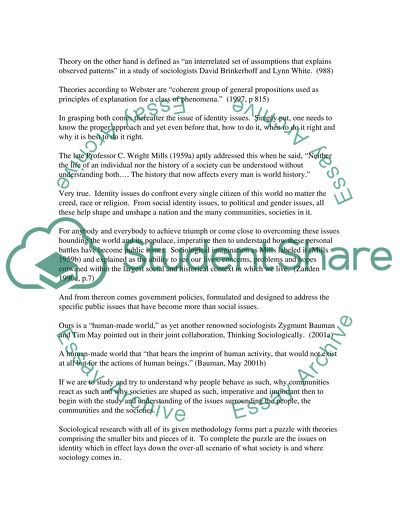Cite this document
(“An Empirical Study on Why Sociological Research and Theory Focus on Essay”, n.d.)
An Empirical Study on Why Sociological Research and Theory Focus on Essay. Retrieved from https://studentshare.org/miscellaneous/1512667-an-empirical-study-on-why-sociological-research-and-theory-focus-on-issues-of-identity
An Empirical Study on Why Sociological Research and Theory Focus on Essay. Retrieved from https://studentshare.org/miscellaneous/1512667-an-empirical-study-on-why-sociological-research-and-theory-focus-on-issues-of-identity
(An Empirical Study on Why Sociological Research and Theory Focus on Essay)
An Empirical Study on Why Sociological Research and Theory Focus on Essay. https://studentshare.org/miscellaneous/1512667-an-empirical-study-on-why-sociological-research-and-theory-focus-on-issues-of-identity.
An Empirical Study on Why Sociological Research and Theory Focus on Essay. https://studentshare.org/miscellaneous/1512667-an-empirical-study-on-why-sociological-research-and-theory-focus-on-issues-of-identity.
“An Empirical Study on Why Sociological Research and Theory Focus on Essay”, n.d. https://studentshare.org/miscellaneous/1512667-an-empirical-study-on-why-sociological-research-and-theory-focus-on-issues-of-identity.


